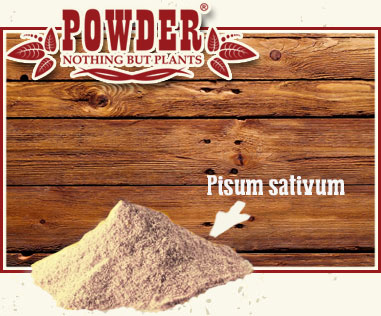- Home
- Food supplements
- Proteins
- Pea protein powder
Buy Pea protein powder
Expiration date (End Of): 11/2026 | Ref. KP25
29,90 € (29,90 €)
Quantity
Buy Pea protein powder
16 servings / Pea protein powder 500 g
This product allows you to accumulate 14 loyalty points. = 0,84€.
Other protein supplements
Description: Pea protein powder
Health claims
Protein contributes to a growth in muscle mass.
Protein contributes to the maintenance of muscle mass.
Protein contributes to the maintenance of normal bones.

Discover the exceptional properties of SUPERFOODS with the new powder range from our new brand POWDER Nothing But Plants® range!
This product range offers an innovative concept: an alternative way of consuming dietary supplements and healthier foods – in milkshakes, salads or mixed with your favourite foods.
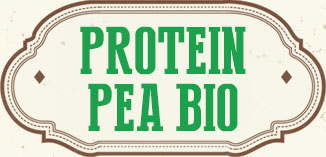
DESCRIPTION
In accordance with our philosophy of providing the highest quality products, we have added organic pea protein, at 85% purity, to our POWDER product range.
Pea protein is the best option for vegetarians and vegans. It is also an excellent alternative for those who want to reduce the consumption of animal products in their diet.
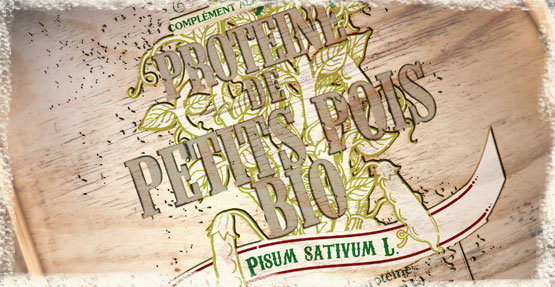
The pea (Pisum sativum L.) is an easily-digestible legume, rich in high quality protein. In addition, pea protein contains all the essential amino acids our body cannot synthesize, is low in fat, and contains fiber.
Pea protein also provides a full sensation after consumption, and thus helps to reduce total food intake.
Our organic pea protein has the highest degree of purity attainable, ensuring top quality, efficient nutrition!
Proteins are the major structural components of muscle fiber and other body tissues. Thus, the main role of proteins obtained through diet is their use in different anabolic processes* (1), and their consumption provides energy during exercise and increases muscle protein synthesis (2).
There are animal and vegetable sources of protein. Among vegetable proteins, legumes stand out (family Leguminosae, subfamily Papilionoideas), as they provide a high-quality protein containing, among other components, the amino acid lysine, an essential amino acid that can only be obtained through proper diet.
Among the legume family, we find the pea plant (Pisum sativum L.), an annual herbaceous plant native to Central Asia and the Middle East, where it has been cultivated for thousands of years. Its edible seed is known as the pea, rich in protein, fiber, carotenoids (lutein and zeaxanthin), vitamins (C, thiamine, niacin and folate) and minerals (phosphorus and iron) (3). Pea protein also contains branched-chain amino acids (BCAA), leucine, isoleucine and valine, involved in protein synthesis in muscle.
* Anabolism: set of metabolic processes for synthesis of complex molecules from simpler ones.
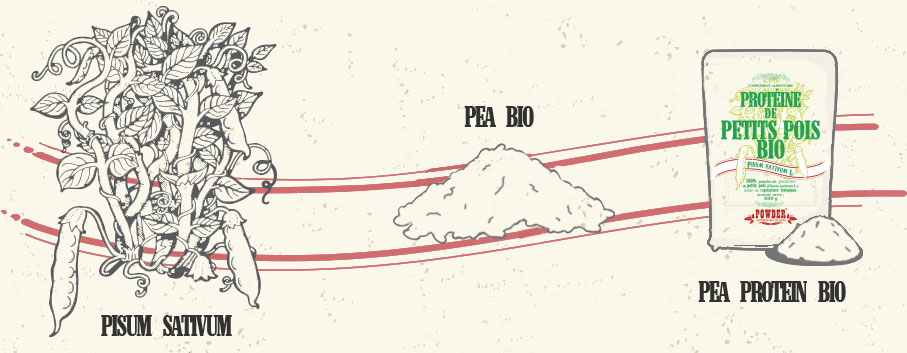
BENEFITS
The World Health Organization recommends a daily intake of 0.8 g of protein per kilo of weight for a healthy adult (4). That is, an adult weighing 70 kg should consume 56 g of protein a day. Regarding the protein source itself, animal protein is often accompanied by saturated fats, so it is preferable that at least 50% of the proteins are of vegetable origin (such as pea protein). Vegetable protein sources provide many nutrients, such as fiber and phytochemical compounds (1). Pea protein also provides a full sensation after consumption, and thus helps to reduce total food intake (5).
Use, directions
1 serving (30 g) per day. Mix with water, juice, smoothies or milk. You can also pea protein powder in meals.

STUDIES
Pea protein is a vegan alternative to whey protein. A study has shown that eating pea protein with a purity of 85%, combined with resistance training, causes increased muscle mass comparable to that of whey protein, and greater than a control placebo. The study's authors also suggested the use of pea protein to maintain muscle mass in the elderly (6).
Finally, several studies have shown a positive effect from the consumption of vegetable protein. For example, a study has linked the intake of plant proteins in postmenopausal women with a decreased risk of gallbladder problems (7). Moreover, another study also conducted in this population group suggested that increased consumption of vegetable protein, and a decrease in animal protein intake, may decrease bone loss and risk of hip fracture (8).
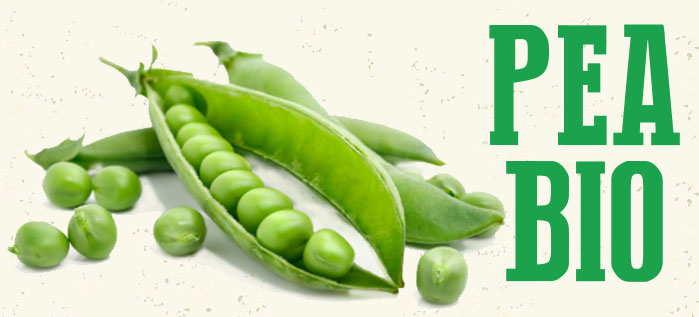
BIBLIOGRAPHY
- Protein – Which is best? Hoffman et al. J Sports Sci Med. 2004. 3 (3): 118–130.
- Guía práctica de nutrición deportiva. Jeukendrup A. Ediciones Tutor, SA. 2011.
- Guisante. Verduras y Hortalizas. Fundación española de la nutrición
- Guía de Alimentación y Salud. UNED. Facultad de Ciencias, Nutrición y dietética. 2021.
- Effect of different protein sources on satiation and short-term satiety when consumed as a starter. Abou-Samra et al. Nutr J. 2011.10: 139.
- Pea proteins oral supplementation promotes muscle thickness gains during resistance training: a double-blind, randomized, Placebo-controlled clinical trial vs. Whey protein. Babault et al. J Int Soc Sports Nutr. 2015.12:3.
- Vegetable protein intake is associated with lower gallbladder disease risk: findings from the women's health initiative prospective cohort. Lander et al. Prevent Med. 2016. 88: 20-26.
- A high ratio of dietary animal to vegetable protein increases the rate of bone loss and the risk of fracture in postmenopausal women. Sellmeyer et al. Am J Clin Nutr. 2001. 73 (1): 118-122.
Ingredients: Pea protein powder
†N/A: Not applicable
Food allergens:
This product does not contain allergens (in accordance with Regulation (EU) No 1169/2011) nor genetically modified organisms.
PEA PROTEIN POWDER: NUTRITIONAL INFORMATION
*1 measuring spoon
*1 measuring spoon
Use: Pea protein powder
DIRECTIONS:
1 serving (30 g) per day. Mix 30 g (1 measuring spoon) of powder with water, juice, smoothies or milk. You can also use the pea protein powder in meals.
WARNINGS:
Not recommended for pregnant or lactating women. Do not exceed the recommended daily dose.
ADVICES:
Does not replace a varied and balanced diet and a healthy lifestyle. If you are undergoing medical treatment, seek your therapist's advice. For adult use only. Keep out of reach of young children.
STORAGE INSTRUCTIONS:
Store in a cool dry place away from sunlight.
Quality: Pea protein powder
PRODUCT NAME
Pea protein powderBOTANICAL NAME
Pisum sativum L.REFERENCE
KP25QUANTITY
500 gBATCH NUMBER
D17731EXPIRATION DATE
2026/11MADE
In FranceSERVINGS PER CONTAINER
16 servingsFABRICATION AND GUARANTEE:
This food supplement is manufactured by a GMP-compliant laboratory (GMPs are the Good Manufacturing Practice guidelines for the European pharmaceutical industry).
The active principle content is guaranteed through regular tests.
Organic products at Anastore are produced in accordance with Council Regulation (EU) No 2018/848 of 30 May 2018 and its subsequent amendments on organic production and the labelling of organic products, with the aim of ensuring consumer confidence and protecting consumer interests.
PRODUCT REGISTRATION:
The notification of placing on the market of this product has been made under notification number PL 2081/122.
Certificate issue date:
Questions: Pea protein powder
Would you like more information about our product?
Ask your question here and our team of experts will answer you as soon as possible.














